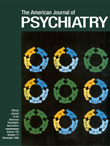Letters to the Editor
To the Editor: In their clinical case conference, Dr. Hersh and his colleagues describe a 40-day interrupted hospitalization of a 71-year-old man with a severe alcohol history who was admitted to an academic medical center for alcoholism. On day 4 of a withdrawal treatment schedule, the patient developed a delirium that progressively worsened. He was treated with thiamine, chlordiazepoxide, and, eventually, haloperidol for severe agitation. On the 18th day, his score on the Mini-Mental State was 23 of a possible 30, and he was transferred to a rehabilitation facility. He relapsed quickly, however, and was returned to the academic center where conservative treatment with the same medications was continued for an additional 2 weeks. At the time of discharge, he was still not fully recovered.
Had this patient been treated in Denmark or Sweden, he would have been a candidate for ECT (1). Admittedly, the literature reviewed by Strömgren is sparse. Considering the life-threatening nature of such deliria, as well as the risks of neuroleptic malignant syndrome with the administration of neuroleptics, especially haloperidol, it is reasonable to consider ECT. There is a need for a collaborative study of the merits of ECT in drug-related deliria.
1. Strömgren LS: ECT in acute delirium and related clinical states. Convuls Ther 1997; 13:10–17Medline, Google Scholar



